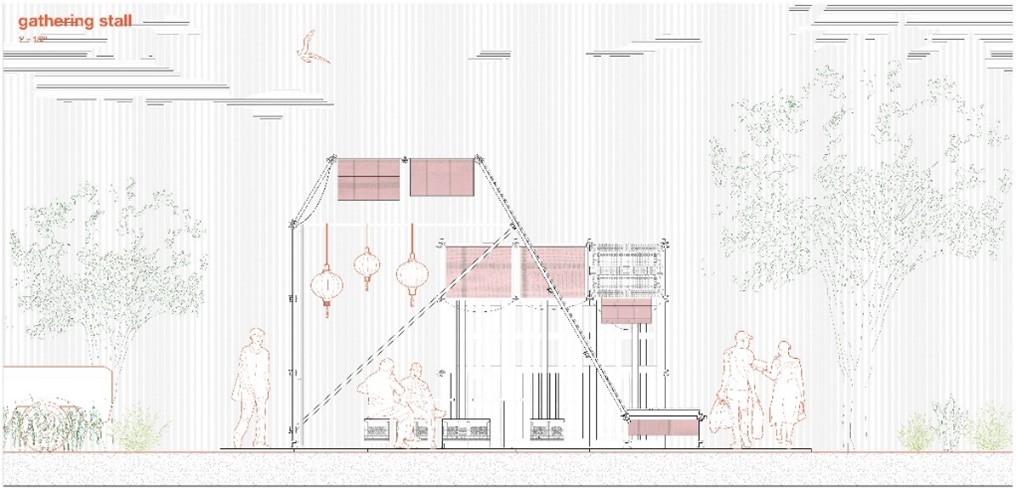
Projects Explore Human Cognition, Connection

In less than one month, more than 100 seniors will submit their final thesis projects. Seniors Dara Hui Jinn, Architecture, Fiona Powers Beggs, Computer Science and Neuroscience, and Mohamed Khan, History and Public Health, recently shared their research with Honors faculty.
Fiona’s thesis project is a combination of mobile application development and a more traditional cognitive science experiment. She has created a mobile iOS application for use in an experience sampling experiment. The experiment is meant to determine if daily use of the application can improve spatial orientation abilities. At the honors thesis research and writing bootcamp in March, Fiona was able to finalize her application, set up the experiment, and explore data analysis methods for the experimental results.

Dara’s thesis deals with the tenuous relationship between the residents of Chinatown and Johannesburg and proposes an architectural intervention that aims to acknowledge the rift and create a platform for open dialogue. Many Chinese in South Africa experience feelings of “otherness” and have developed hostile anxieties towards Black South Africans. Her project focuses specifically on Cyrildene, a neighborhood in Johannesburg which has become a substantial enclave for Chinese residents. Through both collaborative design and architecture, Dara uses the ubiquitous Chinatown feature of the street stall as well as its larger counterpart, the market, as the medium for opening the spatial conversation, creating new zones for gathering and promoting cultural exchange.
Mohamed Khan, History and Public Health, examines the historical United States phenomena of anti-Asian violence and hate that has persisted during periods of national emergencies, including during the spread of plague in the early 1900s and the current COVID-19 pandemic. In his distinction thesis, Khan argues that incidents of anti-Asian bias are not isolated, but systemic patterns perpetrated by those in authority. Khan critically compares how public health authorities, politicians, and white Americans villainized newly immigrated Asian Americans during the San Francisco Plague with how powerful actors exploit COVID-19 to villainize the AAPI community for political gain. Khan argues that as AAPI hate was nationalized and not limited to California in the early 1900s, contemporary advocacy efforts to stop AAPI hate became more pronounced during COVID-19. His thesis attempts to demonstrate these advocacy efforts, and that although language regarding forms of racism has changed over time, perpetration of acts of racism by powerful groups remains the same.









